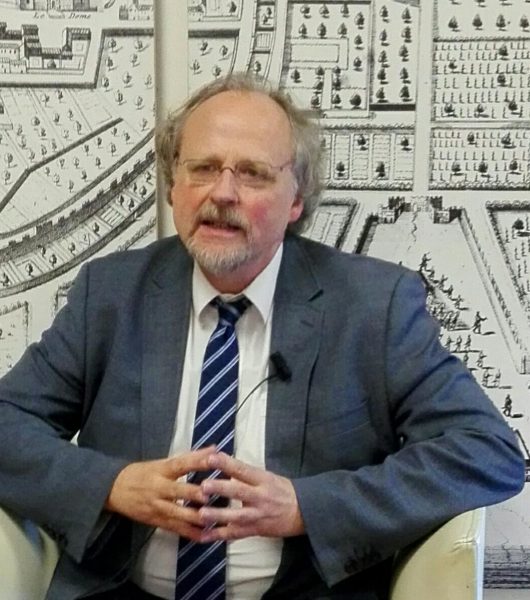The provocative potential of religious freedom. Experiences of a UN rapporteur
UN Special Rapporteur on freedom of religion Heiner Bielefeldt was the protagonist of the Bruno Kessler Lecture, the conference organized annually by the Trentino based research center with internationally renowned scholars.
“At a time of such great importance of religion as a key factor in the global geopolitical situation”, said Fondazione Bruno Kessler President Francesco Profumo “We could not have a better witness today in Trento than Professor Heiner Bielefeldt. This evening we will have the privilege of discussing with him about human rights and in particular the challenges of religious freedom in the world “.
Philosopher and professor of Human Rights at the University of Erlangen, Bielefeldt spoke in particular of the “provocative potential of religious freedom” by combining systematic observations and practical knowledge acquired in the different fact-finding missions in Bangladesh, Vietnam, Sierra Leone, Jordan, Lebanon, Paraguay, Cyprus, Denmark and other countries with which he has been engaged for the United Nations. As the end of the term of his UN appointment is approaching, Bielefeldt has been appointed member of the panel of experts on freedom of religion and belief of the Organization for Security and Cooperation in Europe (OSCE).
After the previous editions of the Bruno Kessler Lecture with Nobel prize laureate for economics Michael Spence, scientist Jared Diamond and mathematician Marcus du Satoy, this is another useful opportunity for reflection and an interdisciplinary culture event.
Lecture abstract. Freedom of religion or belief has established itself as a classic human rights, deeply rooted in national constitutions and international instruments on human rights. However, it not only is often violated in practice; it also shows a surprisingly high “provocative”potential. The provocations which FoRB harbours are manifold. Religious traditionalists and conservative proponents of identity politics typically fear that FoRB might erode existing religious truth claims and hegemonies. Authoritarian governments obsessed with self-serving control agendas, see their party monopolies being challenged once religious communities take their internal affairs in their own hand. However, the biggest surprise is that FoRB may even trigger anxieties within liberal Western societies and liberal milieus, since it reminds the public of the ongoing existential significance that religion has for numerous people, especially in increasingly multicultural and multireligious societies. So maybe, the challenges presented by FoRB are “healthy provocations”.
